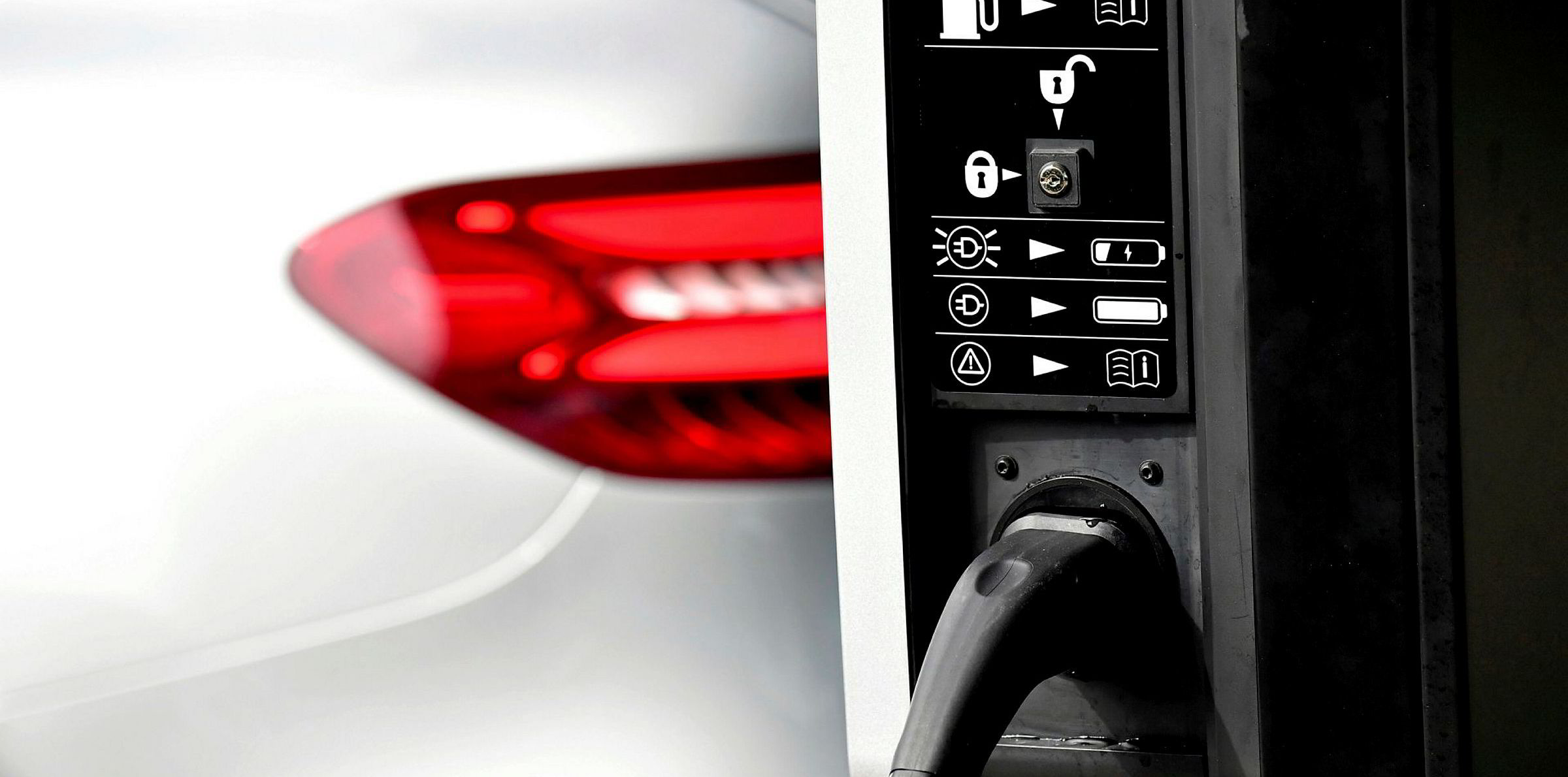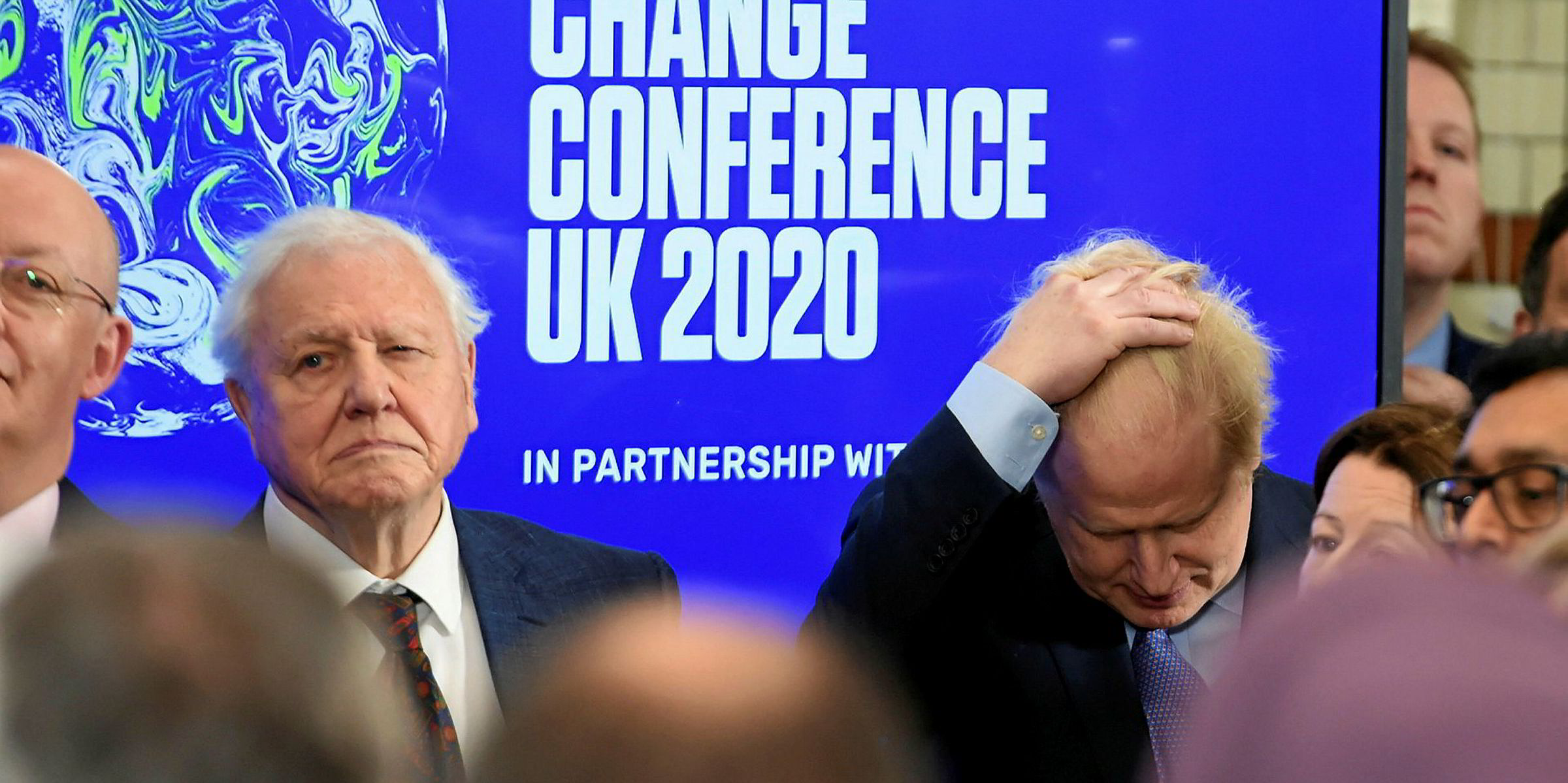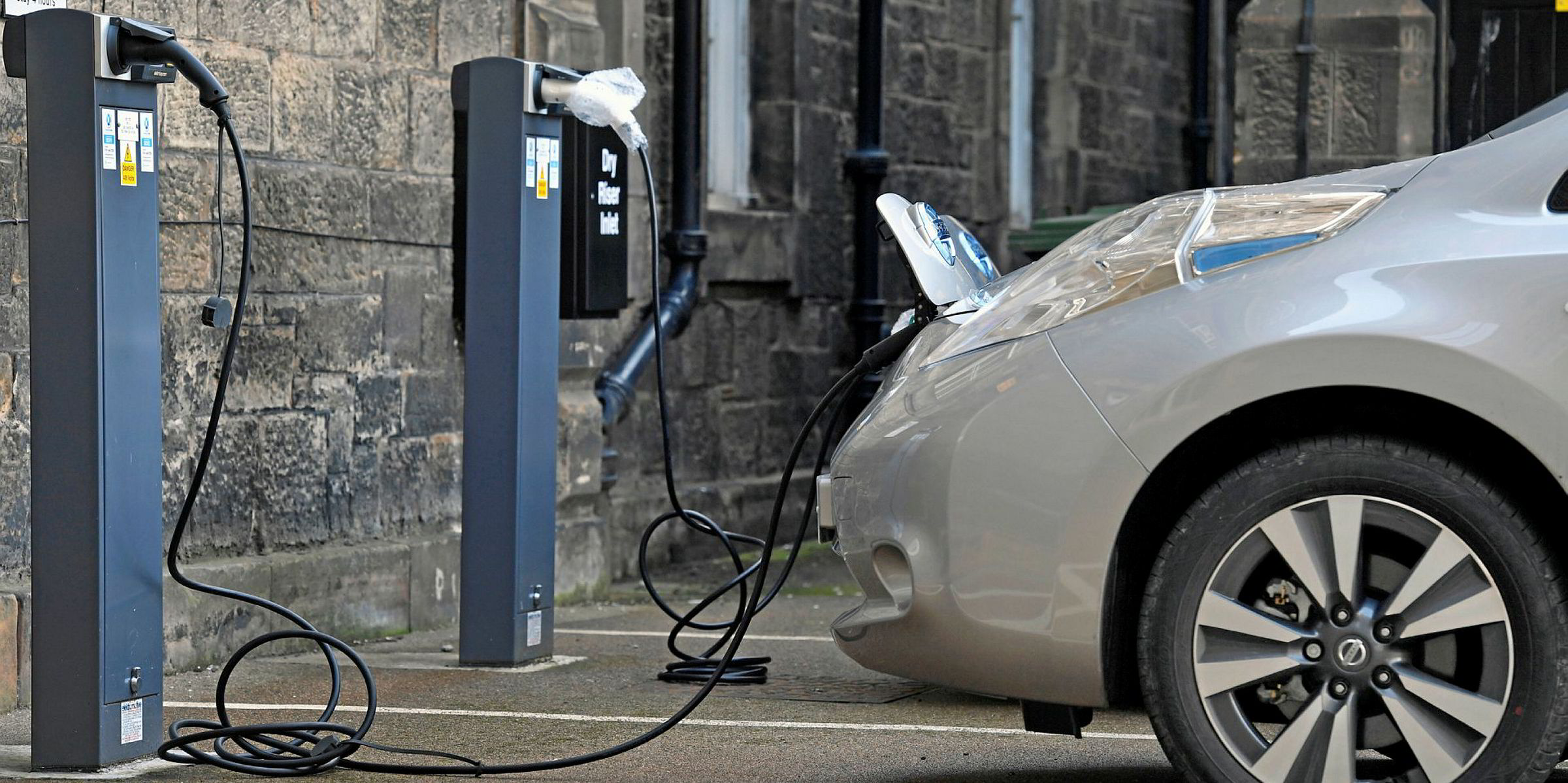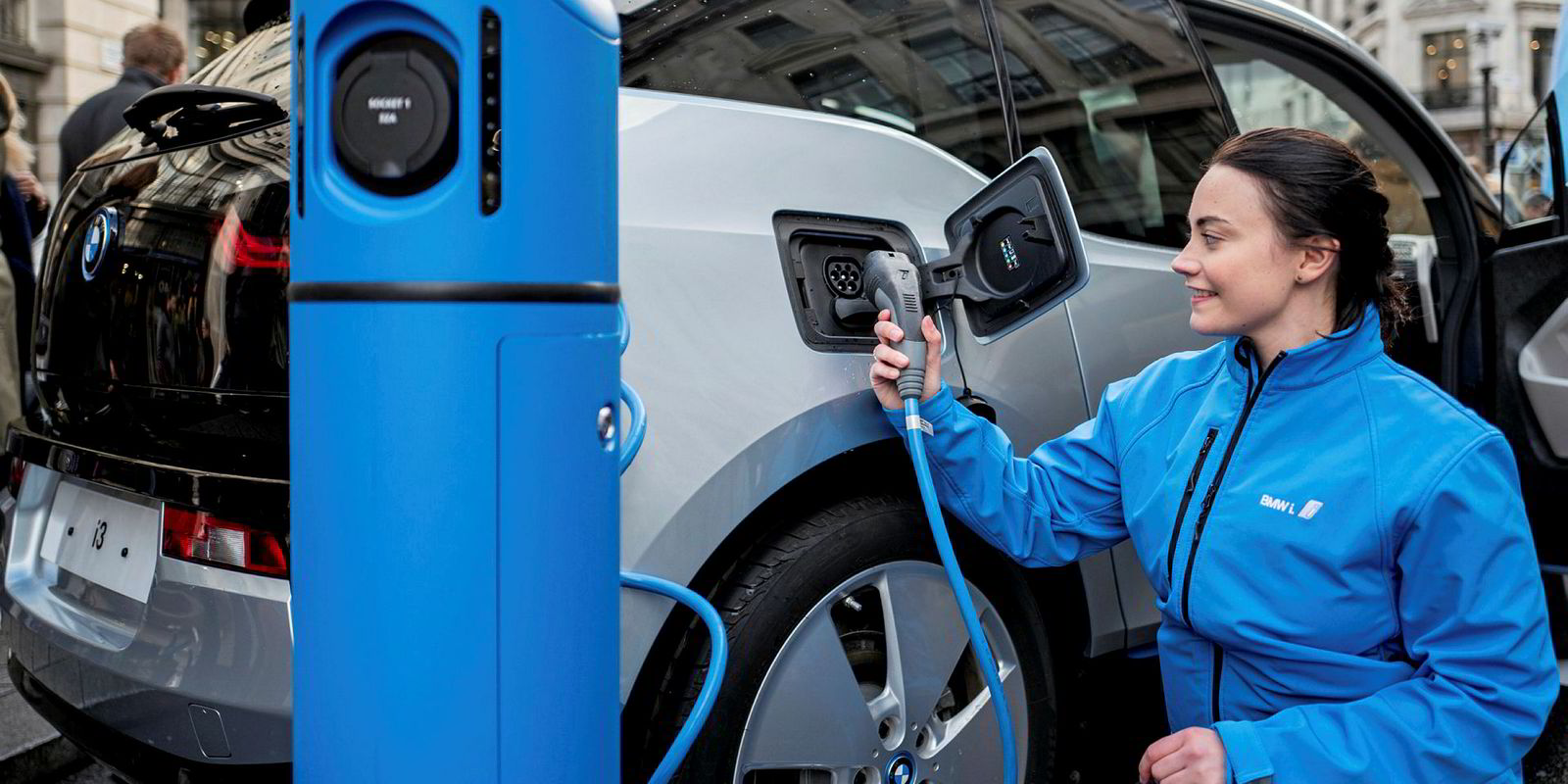The UK has announced plans to ban the sale of new petrol, diesel and hybrid cars from 2035, a move that could hit oil producers but help the nation hit its net zero emissions target over the next few decades.
Prime Minister Boris Johnson said on Tuesday the ban is expected to be in force five years earlier than initially planned, and is designed to significantly reduce CO2 emissions and air pollution.
The UK has pledged to reach net zero by 2050.
The move, which will include hybrid vehicles for the first time, would leave electric cars as the only new option for drivers.
The Conservative Party leader gave no further details.
In the UK, grants of up to £3500 ($4500) are provided to help buy electric cars through dealerships and manufacturers.
According to the UK’s Department for Business, Energy, Industry and Strategy (BEIS), other European nations such as Denmark, Ireland, the Netherlands and Sweden have bans in place from 2030.
Norway’s parliament has a non-binding goal that by 2025 all cars should be zero emissions.
PwC's UK head of energy, utilities & resources, Steve Jennings, said: “Decarbonising the UK's transportation sector is a vital step in meeting the country's net zero ambition. So bringing forward the effective date of a ban on the sale of new internal combustion engines (ICE) and hybrid vehicles is a positive step.
Jennings, however, added: “Widespread adoption is contingent on ensuring the appropriate charging infrastructure is in place for all users - this is a vital piece of the net zero journey.”
Nevertheless, consultancy DNV GL said earlier this year that currently the world’s fleet of passenger road vehicles is 97.5% internal combustion and 2.5% electric.
“By 2050 the fleet will have transformed to 73% electric and 27% internal combustion,” according to its recent Energy Transition Outlook.
“The two main drivers of this transformation are policies to reduce local and global emissions, and the ongoing cost compression and performance improvement of battery technology enabling declining EV costs,” DNV GL said.
However, while car manufacturers plan more than 350 electric models by 2025, mostly small-to-medium variants, the International Energy Agency (IEA) said that consumers are buying ever larger and less fuel-efficient cars, known as sport utility vehicles (SUVs).
“This dramatic shift towards bigger and heavier cars has led to a doubling of the share of SUVs over the last decade. As a result, there are now over 200 million SUVs around the world, up from about 35 million in 2010, accounting for 60% of the increase in the global car fleet since 2010. Around 40% of annual car sales today are SUVs, compared with less than 20% a decade ago,” the agency said.
In fact, SUVs were responsible for all of the 3.3 million barrels per day of growth in oil demand from passenger cars between 2010 and 2018. If consumer appetite for SUVs continues to grow at a similar pace seen in the last decade, SUVs would add nearly 2 million bpd in global oil demand by 2040, the IEA said.
Also, the Paris-based agency said SUVs were the second-largest contributor to the increase in global CO2 emissions since 2010 after the power sector, but ahead of heavy industry (including iron and steel, cement, aluminium), as well as trucks and aviation.
Meanwhile, in the same speech in London, alongside broadcaster and natural historian David Attenborough, Johnson also launched the Glasgow UN Climate Change Conference planned for November, known as COP26.
Last week, Johnson sacked the president of COP26, Clare O’Neill. O’Neill, a former energy minister, accused Johnson of a lack of leadership and said he had admitted to her he did not understand climate change.
The role has not been filled so far.
This article first appeared in Recharge's sister publication Upstream




